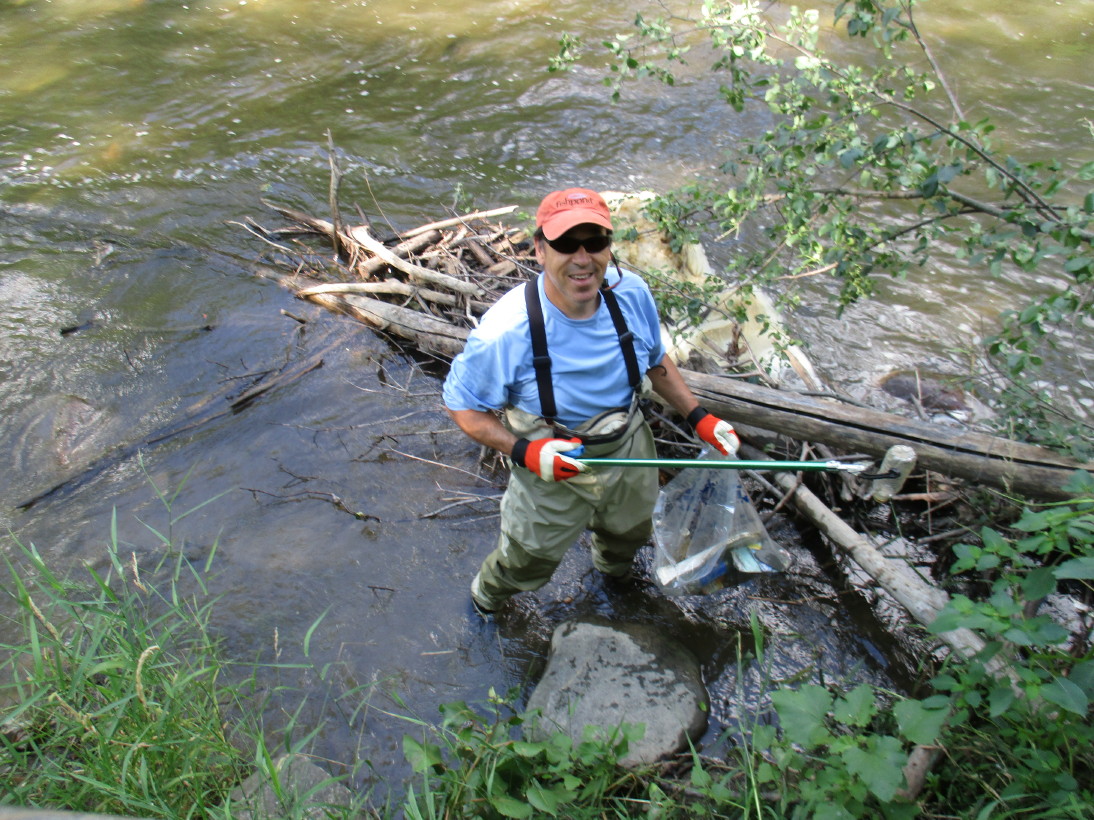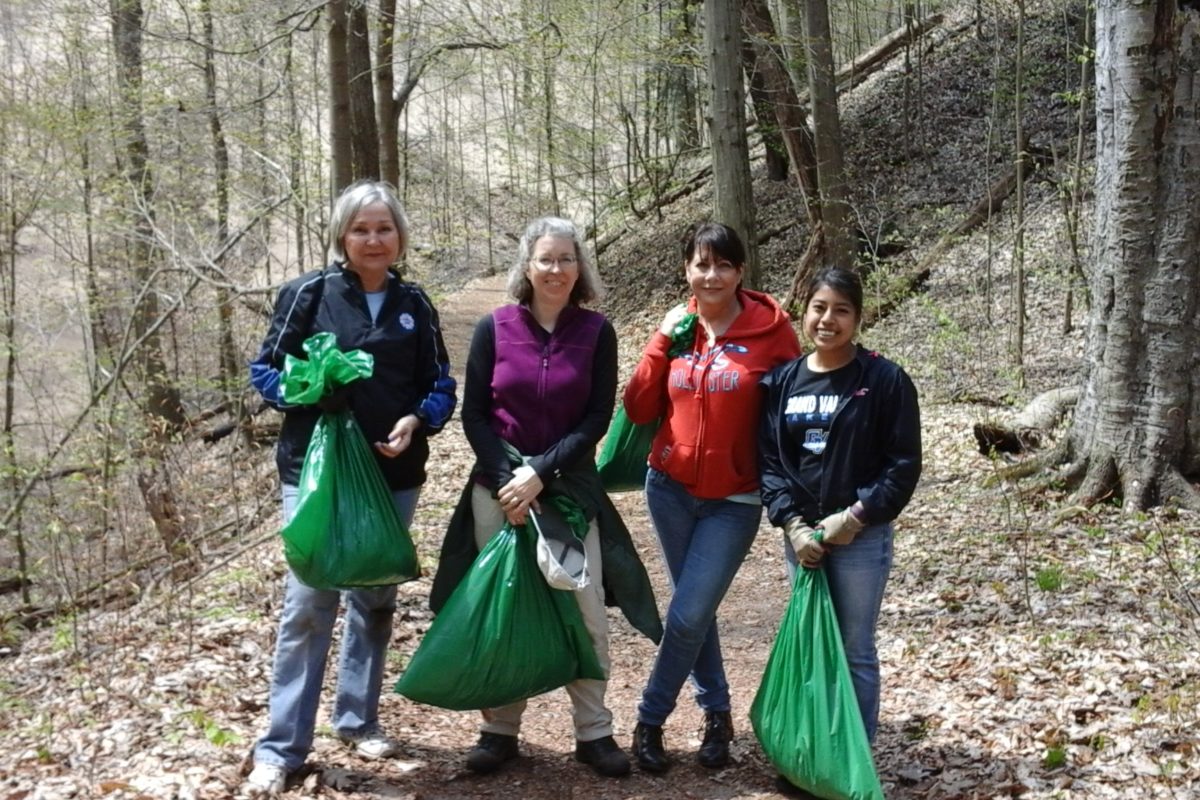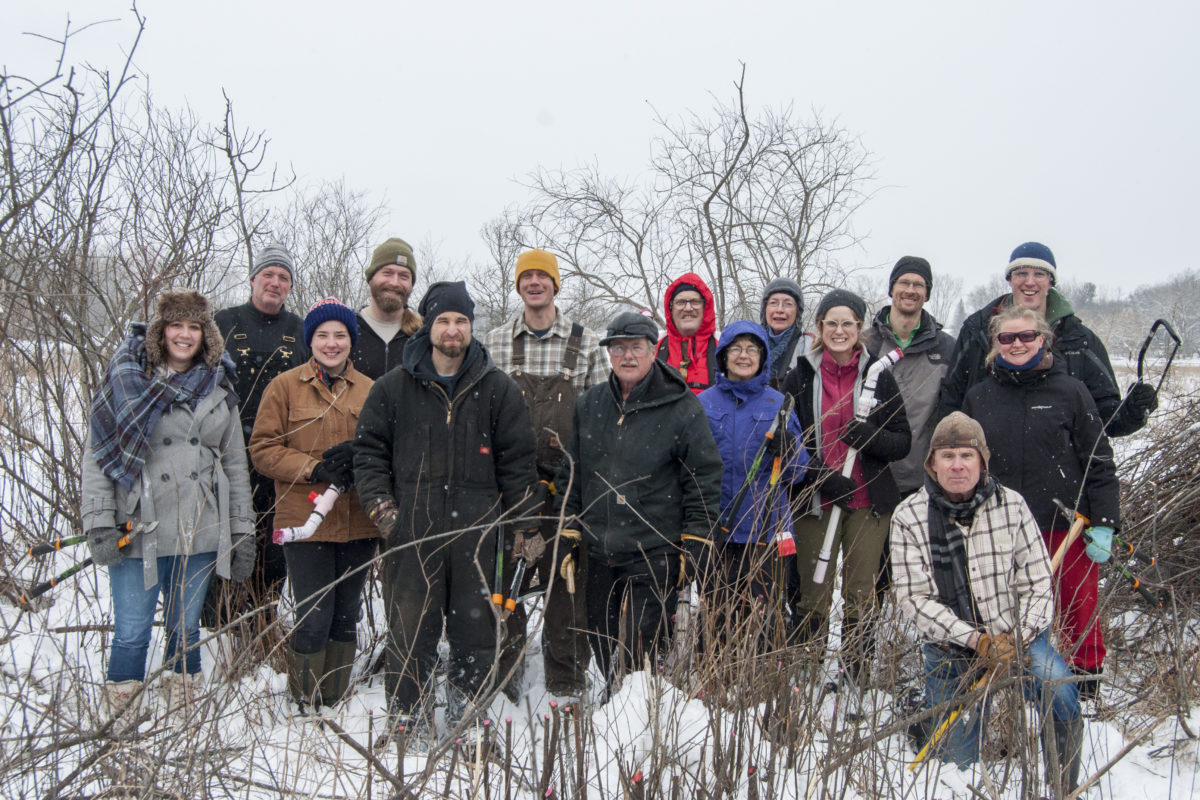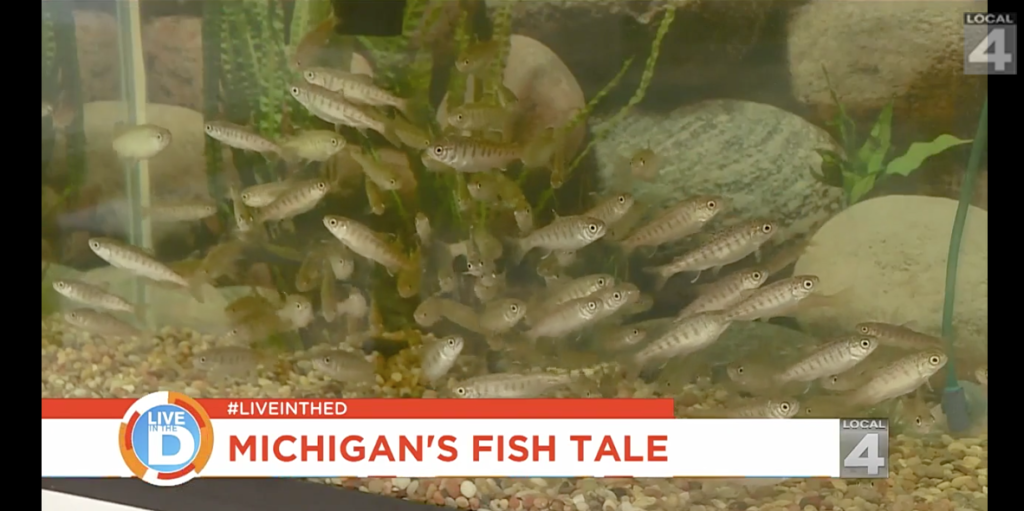Mark VanBogelen does what he can for Mother Nature … and what he can do is cook.
“We’d been out all morning with the Michigan United Conservation Clubs cutting down invasive shrubs in some deep snow and I found out it was a little more taxing than my physical condition could handle,” said VanBogelen, 67.
As he and the others headed in, VanBogelen thought of a different way to do his part: grilling lunch for hungry volunteers.
“Over the next year and a half, I cooked at 14 of the MUCC’s On the Ground projects all over Michigan. The people that you meet are all outdoors people – we all have the same kinds of things in mind. It’s just a fun time,” VanBogelen said.
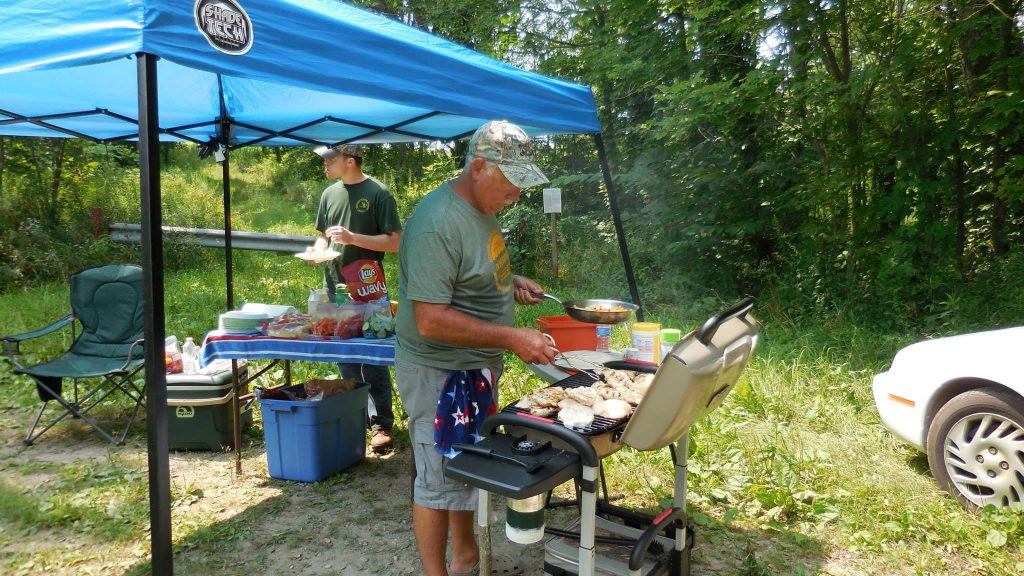
Getting involved in wildlife conservation projects is easy – even in urban Southeast Michigan.
Since 2013, more than 1,600 volunteers like VanBogelen have improved fish and game habitat through weekend projects with MUCC’s On the Ground program. All across Michigan, volunteers pitch in building brush piles, removing invasive trees, installing fish-spawning structures and planting a variety of trees for wildlife food and cover.
“We get a nice variety of volunteers,” said Sarah Topp, MUCC wildlife volunteer coordinator. “Many of them are already involved in hunting or fishing. But a lot of people are just involved in recreation on public land, hiking, camping and bird-watching.”
Volunteers come in all shapes and sizes, from suburbs and sprawling cities. But they have one thing in common: a love of the outdoors.
“We are so very fortunate that so many residents volunteer their time and money each and every day to help protect and preserve our forests, waters and wildlife,” said Matt Pedigo, chair of the Michigan Wildlife Council.
Created in 2013, the Michigan Wildlife Council seeks to educate the public about how Michigan’s wildlife and natural resources are managed and how those activities are funded.
Recent research found that many people believe that management of Michigan’s great outdoors is provided by state taxes. Actually, the primary source of funding for wildlife conservation work is hunting and fishing license sales.
“Hunter dollars almost exclusively fund conservation and restoration,” said Nick Green of the MUCC. “Lots of people, particularly in Southeast Michigan, don't know the relationship is between hunter dollars and wildlife conservation.”
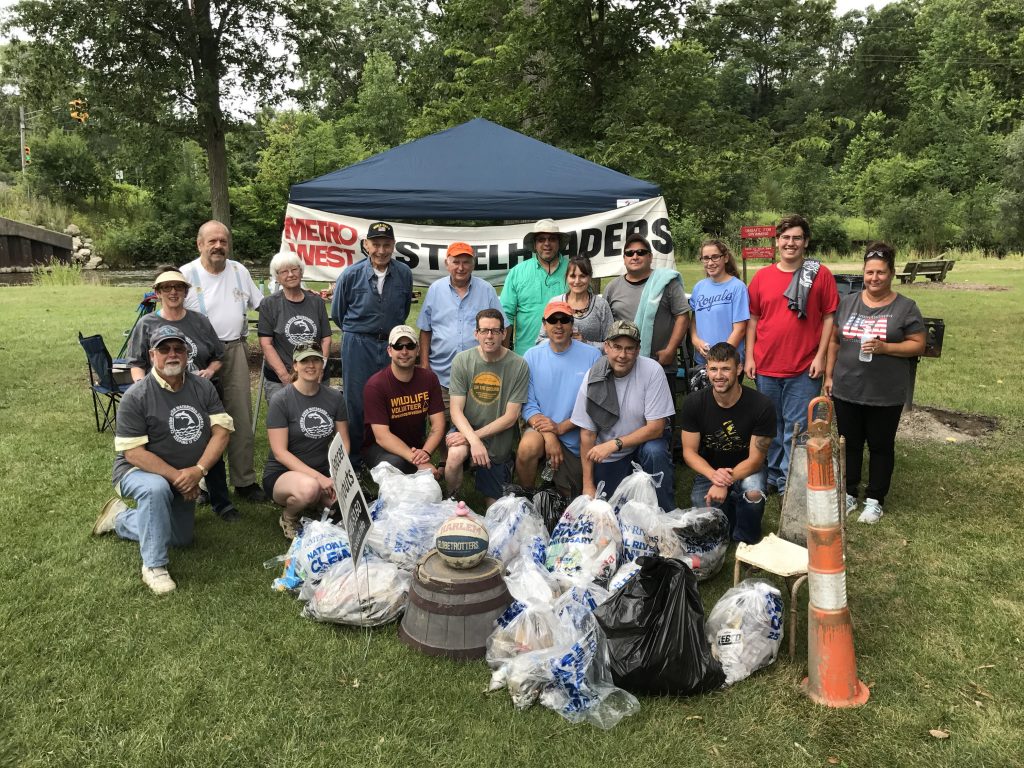
Lending a hand
Two of the many Michigan projects funded with hunting and fishing license proceeds are the Michigan Department of Natural Resources Wildlife and Aquatic habitat grant programs.
The programs provide funding to conservation partners to assist the DNR with developing or improving habitat for game species, fish and other aquatic organism populations by protecting and rehabilitating degraded habitat.
“The DNR grants funding to organizations to complete habitat work like Pheasants Forever or a local watershed council, and they typically bring matching funds to the table like cash, donated equipment or volunteer labor,” said Chip Kosloski, DNR program manager.
Examples of funded projects include enhancement of large grassland complexes, winter deer complexes, mast-producing food sources, forest openings and small game habitat.
Last year, the DNR approved five Aquatic Habitat Grant Program projects totaling $1.25 million. This included a $100,000 grant to the city of Rochester Hills for habitat restoration on Avon Creek.
“People who volunteer with conservation projects have all different kinds of interests in natural resources,” Kosloski said.
Volunteer opportunities with the DNR include restoration and cleanup, wildlife observation, education and services, and donations. Michigan residents volunteer about 10,000 hours annually with the DNR.
And their work makes a dramatic difference.
“There are many state parks which would be entirely different places without the volunteers who have done so much work there,” said Heidi Frei, a DNR natural resources steward.
A popular way to volunteer is on DNR Stewardship Workdays.
“We have ongoing workdays at parks and recreation areas all over the state,” Frei said. “The biggest thing is invasive species control, as well as a fair amount of seed collection of native plants that are used the following year to re-establish native tall grass prairies.”
New volunteers are always welcome – whether individually or as a group.
“There’s never enough hands out there, and the impact is something truly lasting,” Frei said.
Volunteers, donations make difference
Organizations such as Trout Unlimited are also active in all corners of Michigan – including four chapters in metro Detroit, said Jeremy Geist, the group’s Great Lakes stream restoration manager.
“Southeast Michigan has excellent volunteers who spend hundreds of hours and a lot of money restoring and improving the local coldwater trout streams in the region,” Geist said.
Local chapters work with the DNR and watershed councils to construct stream improvements, monitor aquatic organisms and water quality, host educational programs and fundraise.
In Southeast Michigan, Trout Unlimited’s conservation work most often centers on the Clinton River, Huron River and Paint Creek, which are popular with local fishermen.
Getting involved is a great way to foster an appreciation for Michigan’s natural resources.
But not every job entails getting dirty.
Donating or attending various fundraising events are great ways to play a part in conservation, said Tracy Oberleiter, major donor chair for Michigan Ducks Unlimited.
Ducks Unlimited conserves, restores and manages wetlands and associated habitats for North America’s waterfowl. In Michigan, Ducks Unlimited has improved more than 80,000 acres of habitat.
Much of that work is made possible by donations from members, sponsors and the general public.
In Southeast Michigan, the Monroe Chapter of Ducks Unlimited has 1,236 active members and has raised more than $1 million – more money than any other DU chapter in Michigan and among the top chapters in the nation.
“Attending one of our banquets, for instance, introduces people to conservation who may not be touched by it in any other part of their life,” said Oberleiter, Monroe Chapter treasurer. “All of the sudden they find a new world. They say, ‘This is pretty cool. Look at all the good things they do.’”
Another pain-free way to help is simply purchasing a fundraising license plate from the Michigan Secretary of State.
The Ducks Unlimited license plate was introduced in 2014 and, as with plate sales for other groups, funnels $25 of the $35 purchase fee to the organization.
Earlier this year, Michigan Ducks Unlimited used $30,000 in license plate sales to help pay for restoration of 53 acres in northern Monroe County that are part of the Detroit River International Wildlife Refuge.
The restoration provides significant migration benefits for several species of waterfowl and nesting habitat for mallards, wood ducks and Canada geese. It also improves habitat for hundreds of other wildlife species.
“There are plenty of ways for people to support conservation. You just have to do it,” Oberleiter said.
